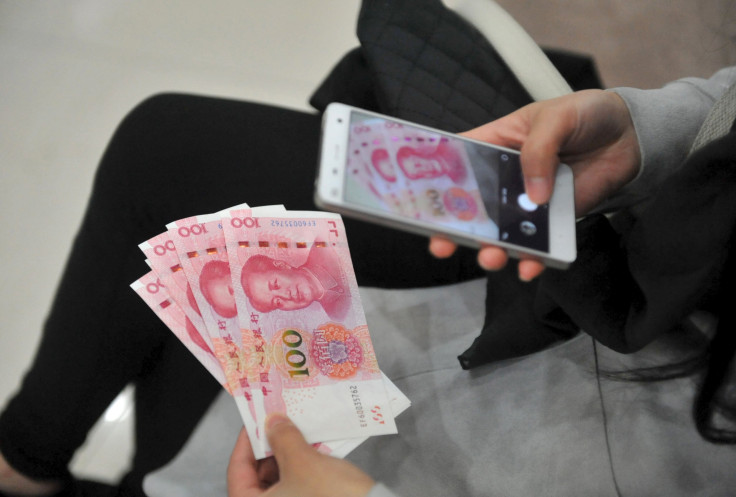China Financial Crackdown: Police Shut Down Nation’s Largest Underground Bank

Chinese police cracked down on the country's largest underground bank in Zhejiang province as part of its ongoing probe into rogue financial institutions, according to local media reports Friday. The country's ministry of public security said that the bank had handled transactions worth about 410 billion yuan ($64 billion) before police shut it down.
According to reports, 100 suspects belonging to 8 different gangs have been arrested since the investigation began in September last year. Police officials told Xinhua News Agency that the gangs were loosely united by a ringleader named Zhao Mouyi, who operated dozens of shell companies in Hong Kong. The probe saw police officials sort through 1.3 million suspicious transactions and 3,000 bank accounts, the state-run Xinhua said.
Many Chinese are trying to move money offshore due to a weakening economy and a perception that their investments are safer outside the country. This has given rise to underground operations that facilitate currency exchange and fund transfers over the permissible limits set by Beijing.
While there is no official data on how large the underground banking business is, China’s crackdown has revealed 170 cases of money laundering and unapproved fund transfers worth more than 800 billion yuan ( $177.4 billion ) since April, the People ‘s Daily said Friday.
"Many customers wanted to avoid China's strict supervision on foreign exchange trade. The gang could earn over 50,000 yuan ($7,834) a day thanks to this," a gang leader referred to as Yang told Xinhua.
The latest case underscores attempts by China's central bank and foreign exchange regulator to crack down on unapproved outflow of money in order to keep the money supply stable and lower domestic interest rates to spur growth, according to reports.
On Thursday, 10 unapproved banks in southern China's Guangdong province, responsible for 51.6 billion yuan ($8.1 billion) in illegal transactions, were busted by regulators, the People’s Daily said.
© Copyright IBTimes 2024. All rights reserved.





















